The study of word origins (that is, etymology) is every bit the serious academic discipline you might expect it to be — except when it's not.
As it turns out, people have a propensity to make false claims about word origins. Sometimes, it's just a case of someone making a bad guess and sharing it. Other times, the inaccuracies seemingly stem from clever pranks that have gone viral because they're funny or irresistibly piquant.
Many of these popular etymological misconceptions (known to linguists and folklorists as "folk etymologies") are based on faulty comparisons or analogies. Still, a surprising number of what we're inclined to call "fake etymologies" (because we're inclined to think many of them were conceived as jokes) are based on acronyms. Did the word "tip" (as in "tipping one's server") originate as the acronym of "to insure promptness"? The answer is a resounding "no" in both cases.

The Claim: The word "news" is an acronym formed from the words north, east, west, and south.
Fact Check Rating: False
This fake acronym is formed from the initial letters of the four cardinal compass points (north, east, west, and south), supposedly because news is information from all over the land. Similar folk etymologies include the idea that "news" derives from an acronym for the phrase "Notable Events, Weather, and Sports.”
More details below:

The concept of "news" was around (and was referred to as such) long before professional sports and reliable weather forecasting became mainstays of that industry (or even existed).
Likewise, the word "newspaper" is not an acronym formed from the words "North, East, West, South, Past and Present Event Report." A newspaper is so named because it is literally paper on which information about recent events (i.e., "news") has been printed.
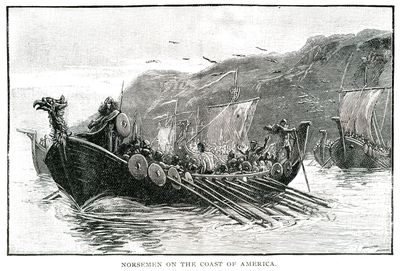
The Claim: Is “SWAG” an acronym? Some believe it could be an acronym for:
- Souvenirs, Wearables, And Gifts
- Stuff We All Get
- Stuff We Ain't Got
- Sold Without A Guarantee
Fact Check Rating: False
Not surprisingly, none of those explanations is correct. The word "swag" is not an acronym.
More details below:

Its meaning has evolved over time and is the likely root of "swagger.”
This term characterizes someone's walk as having a bold, exaggerated, side-to-side movement or describes someone's behavior as boastful, conceited, and arrogant. The first usage of “swagger” dates back to William Shakespeare’s “A Midsummer Night’s Dream.”

Claim: The term "pink slip" came about because companies used to dismiss employees by distributing notices printed on pink slips of paper.
Fact Check Rating: Unproven
Nobody can seem to document that pink slips for dismissal were ever a widespread practice in the United States. Some companies supposedly used pink slips, but these reports have never been verified.
More details below:

The Oxford English Dictionary's oldest citation for the term "pink slip" comes from a 1904 article, with the usage suggesting a warning issued when an employee did not perform a job adequately. The accumulation of too many "pink slips" could result in one's dismissal from employment.
Other languages have also used terms for dismissals related to colorful paperwork: Germans would "get the blue letter" ("den blauen Brief bekommen"), and the French military dismissed personnel with a "yellow paper" ("cartouche jaune"). Maybe one day we’ll know for sure where this phrase comes from, but for now, it remains a mystery.

The Claim: The word "posh" entered the English language as a shortening of the phrase "Port Out, Starboard Home."
Fact Check Rating: False
The explanation is that during the late-19th and early-20th century, Englishmen and women went to India via steamship for a vacation. The afternoon sun would appear on the right (or starboard) side.
During this time, having a tan wasn’t meant for the upper class, so they'd get a Port ticket to avoid a tan on the way to India. Then, returning from India, the afternoon sun was on the left or port side. To avoid a tan, a wealthy person would ask for a ticket “portside out starboard home.” The ticket person would stamp P.O.S.H. on the ticket.
More details below:

There are many issues with this story:
- Passengers didn't book return trips when booking.
- Monsoon winds cause the exposed sides to change seasonally.
- Rentable cabins were on the interior of the ship in the 19th century.
The origin is murky. Initially, it’s suggested the word meant "a dandy" around 1890 and evolved to signify "conspicuously luxurious" by 1914. The term was first used in 1830 to denote money, suggesting a progression from a slang term for wealth to someone affluent and eventually to something costly or exclusive associated with the upper social echelons.
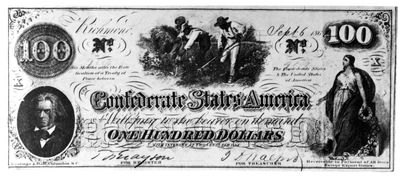
The Claim: Tip as an acronym appears to have three primary "explanations:"
- To Insure Promptness
- To Insure Performance
- To Insure Prompt Service
Fact Check Rating: False
Each " explanation" is long on fanciful theory and short on practicality.
More details below:
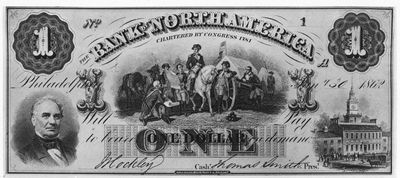
Although handing over a gratuity before the act might inspire the one receiving the generosity to provide a higher level of service, there is nothing "insured" about the transaction.
A waiter generously tipped is just as capable of delivering poor service as one not tipped until the meal is over. The term "tip" has diverse meanings, but its association with monetary rewards to servants emerged in the 1700s.

The Claim: The word “golf” is an acronym formed from "gentlemen only; ladies forbidden."
Fact Check Rating: False
We've said it before, but it bears saying again: Only a few common words truly have acronymic pedigrees, and those harken from the 20th century and later. Golf is an old word that first appeared in our written language in 1425.
More details below:

The term "golf" first appeared in 1425 and might be derived from the Dutch word kolf. However, this connection is disputed due to several reasons. An alternative theory links "golf" to the Scottish goulf, meaning "to strike or cuff," aligning the origin with the game's Scottish roots.
Games similar to golf have been around since Roman times, but golf as we now know it dates approximately to 1552 when the famed St. Andrews course was constructed. Earlier Scottish versions were also referred to as "golf" even though the game so designated was very much different than its later St. Andrews version.

The Claim: To “let the cat out of the bag” comes from cats being sold as pigs.
Fact Check Rating: False
The prevalent theory on the saying's origin involves deceit in livestock transactions, where dishonest pig sellers would covertly replace the purchased pig with a cat in the bag. The buyer would only realize the switch upon releasing the cat at home.
More details below:

There are a few reasons this likely isn’t true. Differences in size, weight, behavior, and sound between house cats and pigs make it implausible that a buyer could be deceived by swapping one for the other in a sack. The origin of "letting the cat out of the bag" remains uncertain.
It could be a metaphor for the explosive revelation of a secret, evoking the shock and surprise from salacious information coming to light. Another interpretation relates to the shared behavior of secrets and cats—once released, they roam freely, spreading widely.
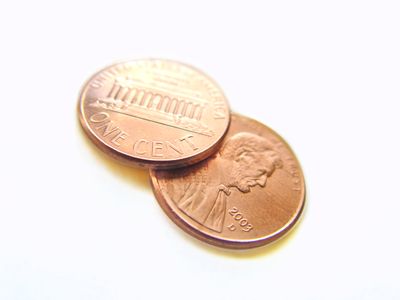
The Claim: “Let me put in my two cents” gained its linguistic origin thanks to the game of poker.
Fact Check Rating: False
That’s just false, and we’re going to untangle why. Firstly, throughout history, specific goods or services, such as twopenny ale, were priced at two cents or its equivalent. This amount was sometimes symbolic, as seen in the biblical tale of the widow's mite.
More details below:
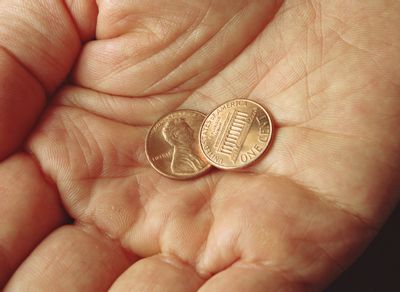
Secondly, the terms "two cent" or "twopenny" evolved to describe items or concepts of minimal value, dating back to 1560. The modifier conveyed dismissiveness, emphasizing the insignificance of the subject at hand.
The third part introduces the idiomatic use of "Here's my two cents" to express an unsolicited opinion. Originating in the mid-1920s in the U.S., this extension of the earlier usage suggests offering one's viewpoint as a modest contribution.

The Claim: The word "club" in "club sandwich" is an acronym for "chicken and lettuce under bacon."
Fact Check Rating: False
A considerable number of people on the internet appear to believe that a food item known as the club sandwich got its name from the acronym of its most common ingredients: "Chicken and Lettuce Under Bacon." The logic likely results from the prescient of “BLT,” meaning “Bacon, Lettuce, and Tomato,” but the history doesn’t support this theory.
More details below:

Club sandwiches have been around for a long time — some sources date them back to the 1890s. However, the theory that it was named for its ingredients appears to be no older than the late 1990s. We scoured book and periodical archives and found no references to any "chicken and lettuce under bacon" version in any text published before 2018.
The "club sandwich" probably originated at the Union Club of the City of New York in the 1880s. Union Club member Ely Goddard (1853-1910) was given credit for the sandwich in articles in the New York Herald in 1891 and 1893, but a chef at the club also could have originated it.

The Claim: "COVID" is an acronym that stands for discovered (and yet to be discovered) variants of COVID-19.
Fact Check Rating: False
In January 2022, a TikTok video suggesting that "COVID" was an acronym for known and unknown variants of COVID-19 went viral. It lists four supposed variants ("C" for corona, "O" for omicron, "I" for IHU, and "D" for delta). This video plays on the conspiratorial idea that the pandemic was planned (it wasn't) and illustrates a common misconception about COVID-19 variants.
More details below:

While the omicron and delta variants have made headlines, there have actually been several additional variants. Furthermore, "corona" isn't really a variant. Instead, it's shorthand for "coronavirus," the family of viruses to which SARS-CoV-2, the specific virus that causes COVID-19, belongs. Omicron and delta are the best-known because they have had the most impact on the pandemic.
Still more details:

IHU refers to the strain that was discovered in France and has not (as of this writing) received an official designation from the World Health Organization. Finally, the V simply has a question mark, and it’s stated the "V" version of the coronavirus has yet to arrive. However, it will be unlikely there will be a “V” strain as there is no “V” in the Greek alphabet. If anything, the next strain will likely be named “pi.”
